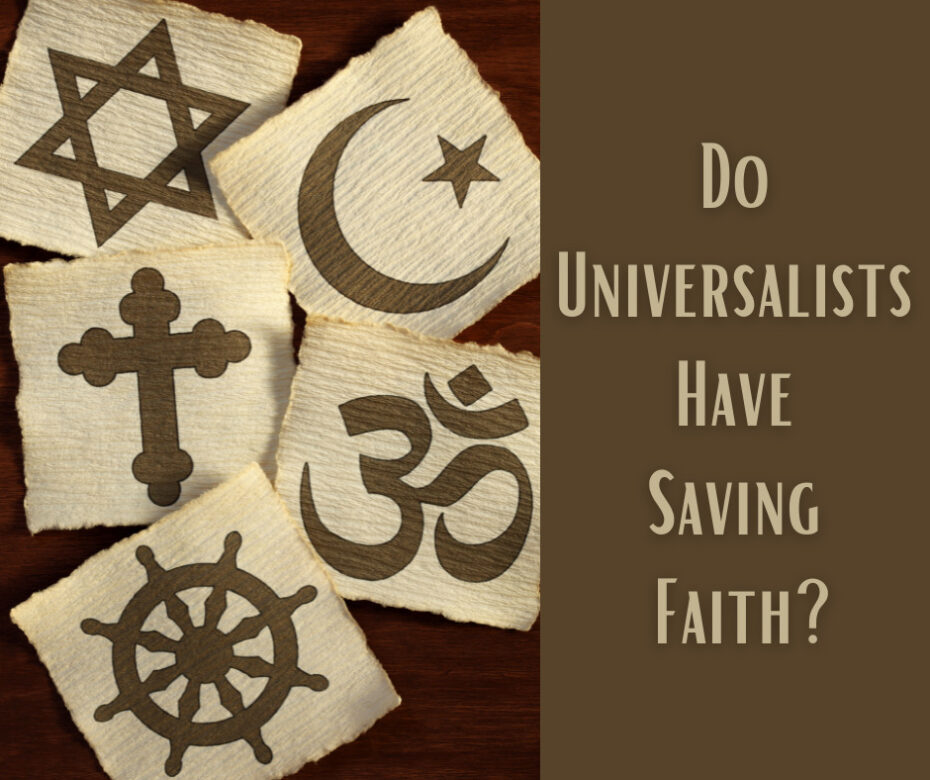Q: If assurance is of the essence of saving faith, and universalists have assurance of their salvation through Jesus because they believe everyone will be saved in the end, do they have saving faith?
A: That is an interesting question. If I remember correctly, Bob and I discussed either that question or something near to it on the Grace in Focus podcast.
The short answer is probably not.
To be saved, you must believe in Jesus for the eternal salvation He promises (John 3:16; 1 Tim 1:16). Salvation is by grace, through faith, in Christ, apart from works (Eph 2:8-9; Gal 2:16). Jesus promised that believers have everlasting life and will never perish. So if someone was persuaded that Jesus’ promise is true, what would he believe he had? Everlasting life. You cannot believe Jesus’ promise without being sure that you have everlasting life and will never perish because that is the content of the promise. Hence, assurance is of the essence of saving faith.
Is that what universalists believe?
No. At least, not for the most part.
The universalists that I’ve read generally hold to the position that everyone will eventually be saved no matter what he believes or whom he believes in. Do you believe in Mohammed? Buddha? Krishna? It doesn’t matter. Everyone gets in. So it is not salvation through faith in Christ.
Furthermore, many of the universalists I’ve read say that everyone will be saved because everyone is basically good. And if they’re not, then cleansing fires will purge them of their bad works, leaving only the good, allowing them to be saved. In other words, they believe in works salvation, once again denying that salvation is by grace, through faith in Christ, apart from works.
Those universalists have faith, but not saving faith, because they have not believed the saving message. And those universalists may have a type of assurance, but it would be false assurance based on a false gospel.
So, to answer your question, I would guess the majority of universalists do not have saving faith because they do not believe anything close to the saving message.
However, hypothetically, a universalist could believe that all humanity will be saved because everyone will eventually believe in Jesus for everlasting life, even if that only happens after death. All the Muslims, Mormons, and Catholics will eventually turn to Jesus in faith for the free gift of salvation, just as he has. That’s the key—not what he thinks will happen to others after death, but whether he himself has believed in Jesus for eternal life. If he has, then he has that life, even if his eschatology is wrong.


